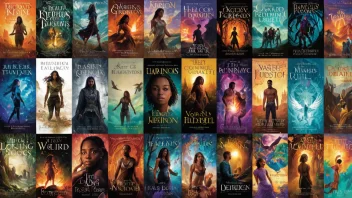Non-fiction literature has long served as a catalyst for social change and a powerful tool for advocacy and activism. Through factual narratives, essays, and research, non-fiction works illuminate important issues, inspire action, and educate readers about various causes. In this article, we explore the diverse ways in which non-fiction literature contributes to advocacy and activism, examining specific themes and influential works that have left a lasting impact.
1. Shedding Light on Social Issues
Non-fiction books often tackle pressing social issues, providing readers with insight and context. These works can range from personal narratives to comprehensive studies. For example, books like 'The New Jim Crow' by Michelle Alexander expose the systemic racism within the criminal justice system, sparking conversations and motivating readers to engage with social justice initiatives. By presenting facts and personal stories, non-fiction authors help readers understand complex issues on a deeper level.
2. Inspiring Change Through Personal Narratives
Many non-fiction works feature personal stories that resonate with readers, making abstract issues more relatable. Memoirs and autobiographies, such as 'Becoming' by Michelle Obama, offer insights into the struggles and triumphs of individuals who have faced societal challenges. These narratives not only highlight personal journeys but also encourage readers to reflect on their own roles in creating change. By sharing their experiences, authors can inspire others to take action and advocate for causes they care about.
3. Documentaries and Investigative Reporting
Non-fiction literature often overlaps with investigative journalism, bringing attention to hidden truths and injustices. Works like 'Fast Food Nation' by Eric Schlosser expose the dark side of the food industry, prompting readers to question their consumption habits and the ethical implications of their choices. These investigative narratives not only inform but also empower readers to demand accountability and change from industries and governments alike.
4. Facilitating Education and Awareness
Educational non-fiction plays a crucial role in advocacy by providing readers with the knowledge they need to become informed advocates. Texts such as 'Silent Spring' by Rachel Carson educate readers about environmental issues, influencing public policy and inspiring grassroots movements. By making complex subjects accessible, non-fiction works help cultivate a more informed public, ready to engage in discussions and activism.
5. Fostering Community Through Shared Knowledge
Non-fiction literature often brings together communities around shared values and causes. Book clubs, reading groups, and online forums centered on impactful non-fiction works foster discussion and action. Through collective reading experiences, communities can come together to strategize and advocate for change. Books like 'The Immortal Life of Henrietta Lacks' by Rebecca Skloot open dialogues about ethics in science and healthcare, mobilizing communities to address these vital issues.
In conclusion, non-fiction literature plays an indispensable role in advocacy and activism by illuminating social issues, inspiring change through personal narratives, and facilitating education and awareness. Through investigative reporting and community-building, non-fiction books empower readers to engage with the world around them and become advocates for meaningful change. By exploring these themes and influential works, readers can harness the power of non-fiction to foster a more just and equitable society.






